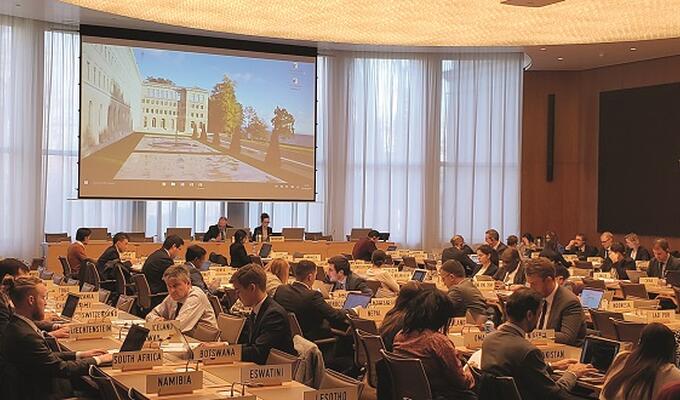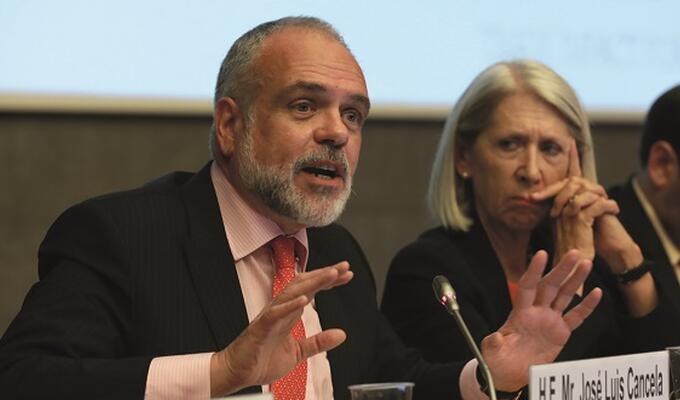

The current work plan of the WTO Informal Working Group on MSMEs
Recognizing trade financing as a decisive factor in achieving economic growth and Sustainable Development Goals
The Informal Working Group on MSMEs, as micro, small and medium-sized enterprises are known, outlined three key objectives for 2019: 1) to achieve concrete deliverables; 2) to expand the Group´s membership; and 3) to secure commitment by ministers at the twelfth World Trade Organization ministerial conference (MC12) in Kazakhstan and aim for a ministerial declaration.
The next World Trade Organization (WTO) Ministerial Conference in Kazakhstan is only one year away, so we are focusing on concrete outcomes, including the development of recommendations or guidelines and putting together the various elements of a ministerial declaration. Two types of recommendations are envisaged: recommendations to be taken at the level of the WTO, which could be of an operational or of a policy nature, and those addressed to national policymakers, which could aim at ensuring MSME-friendly implementation of WTO agreements.
In our transparency cluster we began working this year on a proposal that recommends all WTO members voluntarily provide the MSME-related information during their trade policy review process in a checklist, which includes: background information; marketplace framework; and government programmes and policies. Members may provide such information either in their own government reports, by asking the Secretariat to request the information for inclusion in its reports or a combination of both. Members expressed strong support for the proposal and agreed to move forward with voluntary and flexible principles for addressing MSMEs more systematically in trade policy reports.
Moreover, the group is working on a proposal to create an online platform that would provide information and links to useful resources to help MSMEs and one section for policymakers with information on best practices, national support programmes and MSME-related databases.
Regarding access to information, members continue to call on all WTO Members to contribute to the success of the Global Trade Helpdesk initiative. There is a clear role for all of us to collectively help keep the information accurate, complete and up to date and to ensure that such information can be easily fed from our national repositories into the Global Trade Helpdesk. There is a clear beneficiary to all of this: every single MSME.
Discussions under the conceptual cluster focused on the small business lens. The Think Small First Principle requires legislative projects to undergo an MSME check with consultation of MSME representatives to assess the impact of new trade legislation on MSMEs. It provides for an active involvement process and the monitoring of trade regulations already enacted with regard to friendliness towards small and medium-sized enterprises (SMEs). In this regard, several Members are taking the lead in developing language that could then be inserted in a ministerial declaration.
On trade facilitation,representatives of the Organisation for Economic Co-operation and Development (OECD) presented the key findings of a report titled ‘Helping SMEs internationalise through trade facilitation.’ The findings showed trade facilitation reform can help reduce both fixed and variable costs and that SMEs benefit twice as much from reforms than large firms. The group stressed the importance of sharing good practices and develop possible recommendations for the ministerial declaration.
At the request of the group, the Secretariat prepared a compendium of MSME-related language in regional trade agreements (RTAs). The study shows that out of 312 RTAs notified to the WTO Secretariat, 166 included MSME-related provisions that are featured in 15 different RTA chapters. The idea of this document is to serve as a source of inspiration and to provide a concrete basis from which to start developing recommendations on issues of interest.
Furthermore, Members agreed to develop language for inclusion in a ministerial declaration encouraging members to add firm-size information to their input-output tables used to calculate trade in value-added to increase understanding of MSMEs role in value chains.
On trade finance, group members expressed an interest in mapping trade finance programmes at the national level to help identify best practices and the Secretariat prepared a questionnaire at the request of the group. Data on trade finance programmes could be useful information to add to the Global Trade Helpdesk.
On the whole, members are taking the lead on different topics through informal meetings before the next group meeting in October. Inputs would then be consolidated in a chair´s text to be discussed at the November meeting with the aim of developing draft language of recommendations or guidelines for a ministerial declaration.
What role does improved trade finance, including buttressing the correspondent bank network, play to improving the participation of SMEs in international trade?
The availability of finance is crucial for a healthy trading system. Nowadays, up to 80% of global trade is supported by some sort of financing or credit insurance. However, there are significant gaps in provision and therefore many companies cannot access the financial tools that they need. Globally, over half of trade finance requests by MSMEs are rejected against just 7% for multinational companies. Global liquidity tends to be concentrated within the biggest institutions and their clients. The trade finance gap equals $1.5 trillion nowadays and the estimated value of unmet demand for trade in Africa was $120 billion in 2012, a report of the WTO and the International Finance Corporation has said.
The availability of trade finance is often cited by MSMES as a major barrier to their capacity to trade. In a context of inadequate trade finance and declining access to correspondent banking services in emerging markets (especially in Africa), opportunities for growth and development are missed and businesses are deprived of the fuel they need to trade and expand. While trade is an important factor of development, adequate financing and capacity building assistance is needed for it to be effective. Credit and credit insurance help to oil the wheels of trade by bridging the gap between exporter and importer expectations.
It is therefore important to identify and address financing gaps. Some actions that can be taken include: enhancing existing trade finance facilitation programmes; helping local banking sectors to grow by improving training programmes; better monitoring of problems with provision; and maintaining a closer dialogue with regulators. At the same time multilateral development banks should examine institutional limitations in existing trade finance facilitation programmes to provide remedies for geographical disadvantages or working with certain operators.
At WTO level, the Working Group on Trade, Debt and Finance (WGTDF) has been working on trade facilitation programmes developed by multinational development banks, as well as connecting local banks with international banks to reduce trade finance gaps for MSMEs, particularly in least developed countries. The WGTDF also supported capacity-building programmes for trade finance, such as the ICC training academy.
Hence, trade financing can be a decisive factor in determining MSME contributions to economic growth and the achievement of the Sustainable Development Goals. Efforts are therefore needed to strengthen developing countries’ capacity to finance their trade and build knowledge for handling trade finance instruments.



